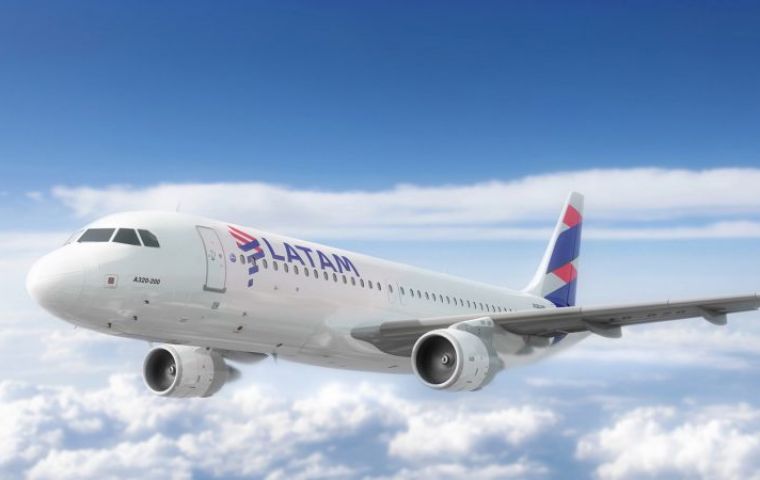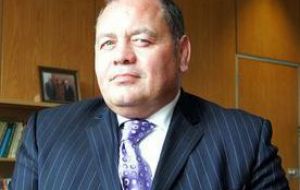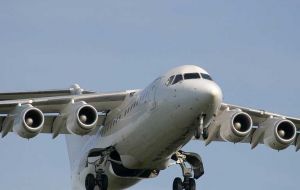MercoPress. South Atlantic News Agency
Falklands: Second flight statement meets approval and dismay
 Sally Ellis, said the tourism industry was “totally supportive” of any progress being made towards increasing air access to the Falklands, particularly in summer
Sally Ellis, said the tourism industry was “totally supportive” of any progress being made towards increasing air access to the Falklands, particularly in summer  Gavin Short is unhappy with Argentina's involvement, particularly since the news had broken in the Argentine media before the Falklands public had been informed
Gavin Short is unhappy with Argentina's involvement, particularly since the news had broken in the Argentine media before the Falklands public had been informed  MLA Barry Elsby, one of FIG's spokesperson on air links, was keen to corroborate the assertion that any decisions to be made would come from MLAs.
MLA Barry Elsby, one of FIG's spokesperson on air links, was keen to corroborate the assertion that any decisions to be made would come from MLAs.  The process in which the FIG embarked upon was designed to offer what CEO Barry Rowland described as “a palette of options.”
The process in which the FIG embarked upon was designed to offer what CEO Barry Rowland described as “a palette of options.”  ”A mid-week flight would be marvelous” said Mrs Williams Manager of Falklands Holidays
”A mid-week flight would be marvelous” said Mrs Williams Manager of Falklands Holidays  Mr. Short hope that former air-link provider Aerovias DAP would show interest
Mr. Short hope that former air-link provider Aerovias DAP would show interest A statement entitled ‘Progress made towards establishing a second commercial Falkland Islands air link’ released last week by the Falkland Islands Government, but too late for publication in the Penguin News, has met with a mixed reception in the Islands. While some have expressed favor others have reservations and questions as witnessed by readers’ letters in this Friday edition.
The statement contained the information that UK embassies in Brazil, Chile, Paraguay and Uruguay had received a letter jointly issued by the UK and Argentina governments, requesting local governments assistance in contacting airlines in the respective countries, and inviting them to communicate their interest in establishing a new weekly scheduled air service to and from the Falkland Islands.
The receipt of any response by the end of February, the statement continued, would initiate a managed commercial process led by the Falkland Islands, which would aim to evaluate viable proposals from interested airlines and undertake negotiations with them.
The objective would be to secure one additional flight per week, including a monthly stop in Argentina, once in each direction, before the end of 2018. This would complement the existing weekly LATAM flight to and from Chile.
Tourism response. Sally Ellis, who as Chair of the Tourist Board, Vice Chair of the Chamber of Commerce and Manager of International Tours and Travel, is directly concerned with all aspects of flights to and from the Falkland Islands said that all the organizations she represents were “totally supportive” of any progress being made towards increasing air access to the Falkland Islands, particularly in the summer months.
As might be expected from the manager of the local LATAM agency, Mrs. Ellis did question the wisdom of seeking to employ a competing airline, if one of the aims of the second flight was to offer passengers the option of shorter stays either here or in Chile. She felt that unless the airlines involved were prepared to make their fares compatible, arriving on one airline and departing on another could prove to be expensive. Similarly, a single airline might be in a better position to adapt its service provision to the likely falling-off of demand during the winter.
Quite apart from the competition for seats on the Saturday flight between two valuable tourist markets: expedition ship passengers and land-based tourists, Mrs. Ellis said the Chamber of Commerce, as agents for international couriers, DHL had experienced difficulties due to flight overloading and cancellations.
Support for a second flight was echoed by Margaret Williams, manager of in-bound tour operator Falklands Holidays, who said that at the moment her company were “really struggling with getting clients to the Falklands in the summer,” particularly due to competition for seats on the weekly LATAM flights from cruise ship passenger exchanges. Despite arranging on-Islands itineraries for clients up to two seasons in advance, not being able to book them on the over-subscribed inbound LATAM flight more than eleven months in advance often meant they could not come.
A mid-week flight would help avoid that problem, even if it was a smaller plane just running between the Islands and Punta Arenas. “That would be marvelous” said Mrs Williams.
Charter flight question. While Mrs. Williams and Mrs. Ellis expressed cautious enthusiasm for a statement which illustrates the more conciliatory attitude towards the Falklands demonstrated in the Joint Communiqué between Argentina and Great Britain signed in 2016, both were united in believing that a more immediate and significant move on Argentina’s part would be the lifting of the current ban on charter flights. “It would be a dream” said Mrs Williams as it would immediately relieve the current pressure.
Opposition. As readers of our Letters Page will be aware, not everyone in the Falklands was delighted by the recent statement on the search for a second flight. Among them was former MLA Gavin Short. Mr. Short said that he was unhappy about the involvement of the Argentine Government and particularly unhappy that the news of the new initiative had broken in the Argentine media before the Falkland Islands public had been informed.
Mr. Short’s opposition to any flight landing in Buenos Aires is well known, but he told Penguin News that he believed a second flight could work under certain conditions. He personally favored a regional flight linking the Falklands with Punta Arenas using the kind of plane that could carry both freight and a limited number of passengers. He hoped that former air-link provider Aerovias DAP would show interest as he doubted whether there was sufficient winter traffic to make a service with a larger plane commercially viable.
Mr. Short also doubts the claim made by lawmaker MLA Barry Elsby that having two commercial airlines operating into the Falklands from Latin America would tend to lead to improvements in the service and significantly lower fares.
He agreed with Mrs. Ellis’s assertion that unless the two airlines entered into an agreement over compatible ticket pricing the cost to the passenger who wished to arrive with one airline and depart with another would inevitably rise. If, on the other hand a price war between the two was initiated, its purpose would be to enable one airline to drive out the other’s service. Such a process, Mr. Short opined, could leave access to the Falklands in less trustworthy hands than at present.
Chief Executive. In conversation with Penguin News, Chief Executive Barry Rowland said that he was very well aware of the concerns of local stake holders and had been approached by some of them.
However, the starting point had to be not the almost impossible task of reconciling the often conflicting views of stake holders, but an understanding of what the industry considered to be commercially possible and viable.
What the process that was being embarked upon was designed to offer was what he described as “a palette of options.”
The government’s aviation advisors, Aviation Economics, would assist in the technical evaluation of any offers that might be made, but it was the Falkland Islands Government in the person of the MLAs who would make the final decisions with open minds and maximum flexibility.
MLA Barry Elsby, who with the Chief executive is one of the two FIG spokespersons on air links, was keen to corroborate the assertion that any decisions to be made would come from MLAs.
Far from being pressured by the FCO to accept any particular route or airline, MLA Elsby said that the present statement had come as a result of continued pressure on Whitehall from the Falklands to urge the Argentine Government to live up to the promises made in the September 2016 joint communiqué. (Penguin News).-




Top Comments
Disclaimer & comment rules-

-

-

Read all commentsArgentina will finally twig they cant colonise the Falkland Islands within 25 years... ;-)
Feb 23rd, 2018 - 11:53 am +6As I've mentioned elsewhere Think. the final say lies with the islanders. Confirmed by the British Ambassador in Buenos Aires in fact. If the Islanders don't want a stop-over in BA, then there won't be a stop-over in BA.
Feb 23rd, 2018 - 01:30 pm +6Fact.
Article says...
Feb 23rd, 2018 - 10:42 am -5“Gavin Short is unhappy with Argentina's involvement, particularly since the news had broken in the Argentine media before the Falklands public had been informed”
I say...:
Gavin ain't no Turnip...
Commenting for this story is now closed.
If you have a Facebook account, become a fan and comment on our Facebook Page!